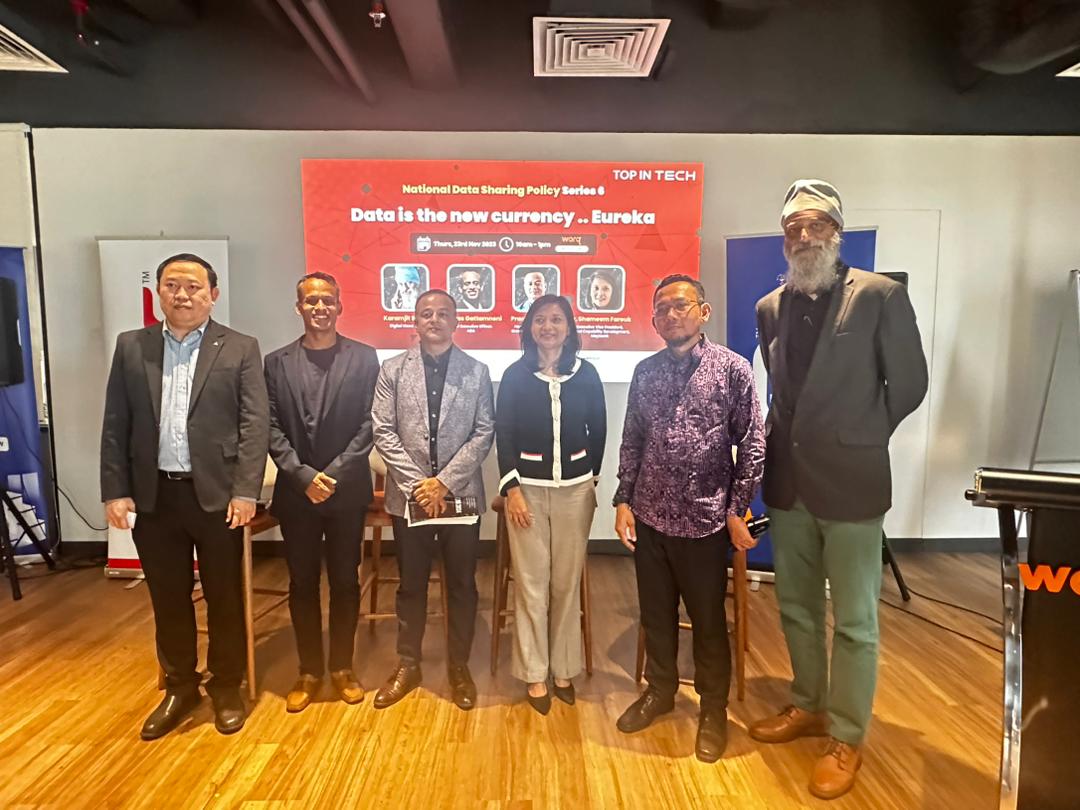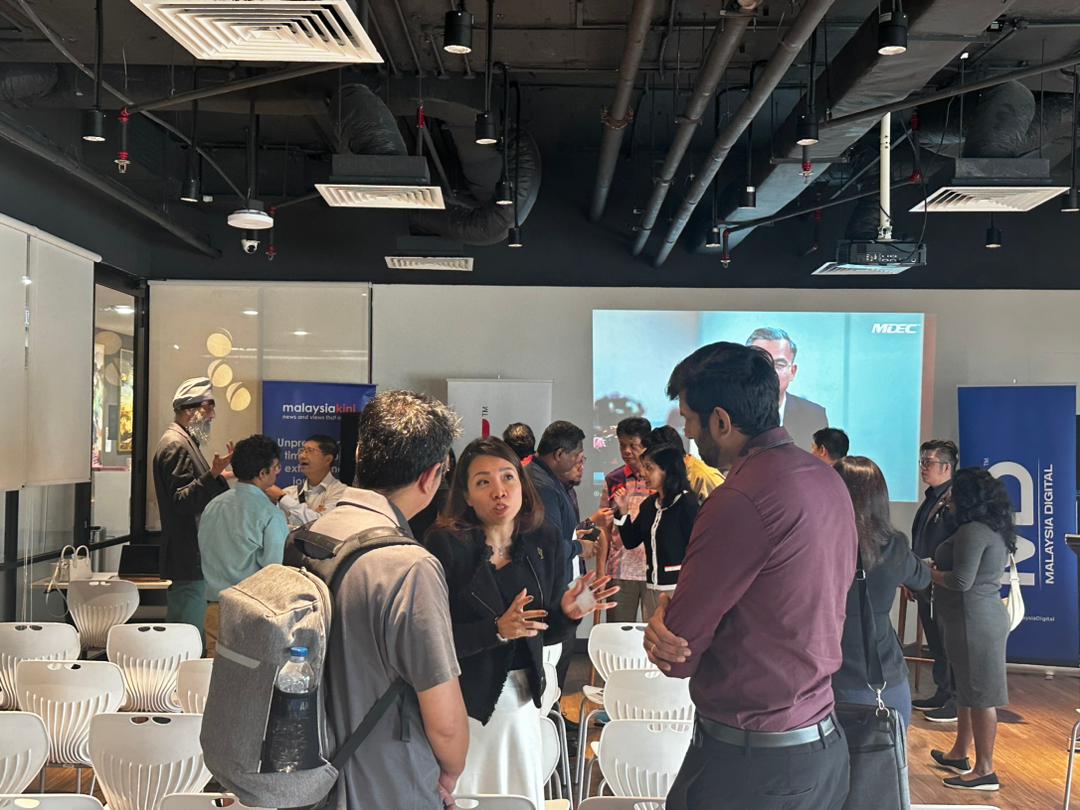In 2022, the Government launched the National Data Sharing Policy (NDSP), a visionary policy that transcends boundaries, encompassing the public sector, the private sector, and the Rakyat. This policy holds the key to fostering a data-sharing environment that is not only conducive but transformative.
To raise awareness and gather valuable feedback, we have initiated the NDSP Series – a collaborative effort by the Malaysia Digital Economy Corporation (MDEC), Malaysiakini, and Digital News Asia (DNA), with the support of the Ministry of Communications and Digital (KKD).
This series aims to educate the public about the benefits and challenges of data sharing while gathering opinions and suggestions to enhance the policy and its implementation. Your active participation in these discussions will be instrumental in shaping the data-sharing practices in Malaysia, leading us toward a secure and dynamic digital world.
The 6th Episode of the National Data Sharing Policy, Karamjit Singh, Chief Executive Officer (CEO) of Digital News Asia, engaged in a discussion with Srinivas Gattamneni, Chief Executive Officer, ADA, Dr Shameem Farouk, Executive Vice President (EVP) of Digital Capability Development at Maybank and Prashant Kumar , Head of Generative AI, Growth Markets, Founder, Entropia.

Exploring the Impact of Artificial Intelligence (AI) and Empowering Marginalized Communities Through Data Access
The discussion began by exploring the concept of data as the new currency, highlighting its pivotal role in today’s business landscape. It is seen as a crucial asset shaping how modern companies work and on how leading businesses are using data to make big changes in how they do things.
In the conversation, Dr. Shameem Farouk explained the approaches her organization uses to close data access disparity for underserved communities. She emphasized programs designed to guarantee fair access to technological progress and acknowledged the socioeconomic obstacles that hinder accessibility. Subsequently, Dr Shameem responded to a query regarding strategies or initiatives within her own company aimed at bridging this gap and ensuring technological advancements benefit marginalized groups.
“AI is useful in banking systems when deployed properly to ease the process behind the scenes in identifying suspicious transactions, detecting patterns and weed out scammers," said Dr Shameem.
Prashant highlighted how the integration of AI, machine learning, and extensive data enables proactive monitoring of suspicious transactions, leveraging algorithms to foresee potential suspicious activities and avert them before occurrence. Additionally, Dr. Shameem notes that instances of unsuspecting customers falling prey to cybercriminals do not stem from technology malfunctions. To solve this issue, banks are constantly spreading awareness on scams.

Navigating the Evolving Landscape of Digital Currencies and Financial Measures
One of the key narratives that emerged from the discussion was the evolving perspective of data as a currency rather than a conventional asset. Prashant offered insights into this paradigm shift saying, “Businesses are progressively acknowledging the role of data as a dynamic currency, leveraging it not just for its inherent value but as a catalyst for transformative growth.” This shift signifies a departure from perceiving data in static terms and embracing its potential as a fluid and exchangeable entity within the business ecosystem.
He steered discussions through the uncertainties associated with the transition to digital currencies. While acknowledging worries about potential financial exclusion, he emphasized the critical need for measures that prioritize both inclusivity and security in this evolving landscape.
Srinivas also highlighted the challenges where scammers engage customers in personal conversations, mimicking banks, leaving financial institutions unable to intervene effectively and resulting in monetary losses. Addressing this, the focus shifts toward public awareness as a key solution to combat such fraudulent activities.
The following question pertains to the digital currency system where there is apprehension among citizens about the potential loss of access to their funds and heightened control by financial institutions, leaving individuals vulnerable to having their financial access severed at any given time. Therefore, the transition might prompt resistance or even revolt from the public. The audience inquired about the measures to ensure financial inclusivity and security in a digital currency era, with Prashant responding and emphasizing, “Empowering businesses to extract meaningful insights facilitates proactive decision-making through real-time data analysis. Blockchain technology, on the other hand, offers an unparalleled level of data security and transparency, fostering trust and facilitating secure transactions in the evolving data economy.”

The discussion ended by embracing data as a currency that requires businesses to not only invest in cutting-edge technologies but also in cultivating a culture of data literacy, governance frameworks, and strategies that adapt to the dynamic nature of this evolving currency. Only through such endeavors can businesses harness the true potential of data as a transformative force driving innovation, growth, and sustainability in the ever-evolving global economy.
Watch the full webinar HERE Data and the new currency… Eureka
This article is provided by KiniEvents

